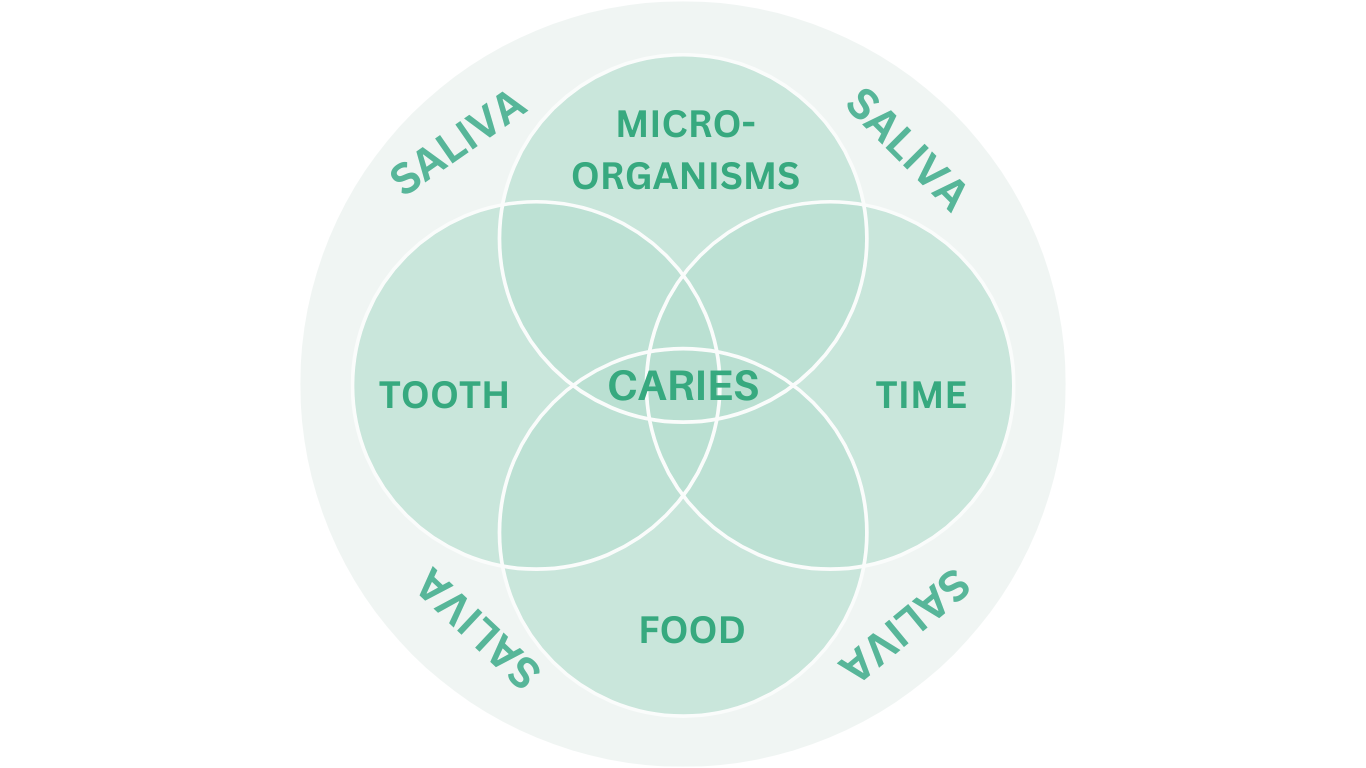*This content has been reviewed by Dr. Wendy Ward (Professor, Kinesiology and Health Sciences, Brock University)
Cariogenic foods are those that produce or promote the development of tooth decay.
- Cariogenic Food Cans Promote Development of Tooth Decay. All fermentable carbohydrates, including sugars, contribute to the development of tooth decay.
- Frequency and Exposure to Cariogenic Foods. The longer and more frequently teeth are exposed to cariogenic foods and beverages, the greater the risk of tooth decay.
- Preventing Tooth Decay. In Canada and other developed countries, water fluoridation, regular tooth brushing with fluoridated toothpaste, and flossing are the primary strategies for preventing tooth decay. Regular dental checkups are also recommended.
Cariogenic Foods Can Promote Development of Tooth Decay
Cariogenic foods are those that produce or promote the development of tooth decay. Cariogenic foods contain highly fermentable carbohydrates, may have a sticky consistency, and are broken down into sugars in the mouth by the enzyme amylase in the saliva, which can be further fermented by oral bacteria into organic acids. This reduces the pH in the mouth, which can cause tooth enamel to begin to dissolve or demineralize (see diagram below).

Examples of cariogenic foods and beverages include:
- Sugary and starchy foods such as bread, rice, noodles, crackers, cakes, sweetened cereals, and hard and chewy candies;
- Sticky foods such as dried fruits, fruit snacks, cookies, and chewy candies (toffee);
- Beverages such as sweetened soda, fruit drinks, fruit juice and other sweetened beverages (including sugar-free sodas, which contains acid that erodes tooth enamel).
Frequency and Exposure to Cariogenic Foods
It is not the total amount of sugars and starches consumed that contributes to the formation of dental caries, but the frequency of fermentable carbohydrate consumption, how long the food is in the mouth, and if it sticks to the teeth (1, 2). The longer and more frequently teeth are in contact with fermentable carbohydrates, the greater cumulative exposure of the teeth to acids, which leads to subsequent demineralization. This can occur in a number of ways:
- ‘Grazing’ on foods or sipping beverages over long periods of time;
- Foods sticking in the crevices between teeth or deep fissures of molars.
Frequent consumption of fermentable carbohydrates, especially between meals, is a greater risk to dental health than the overall amount of fermentable carbohydrates consumed. A review by Anderson et al of 31 studies found that the quantity of sugars did not have a significant impact on dental caries, but the frequency of sugars intake did impact dental caries (3).
Preventing Tooth Decay
In Canada and other developed countries, good oral hygiene practices including fluoride, tooth brushing, and regular dental checkups are the primary strategies for preventing tooth decay and dental caries (4).
The Canadian Dental Association encourages Canadians to brush after meals, floss regularly, and visit a dentist regularly for a checkup (5). Frequency of visits is determined by individual needs. When brushing is not possible, rinsing with water or mouthwash after eating or drinking fermentable carbohydrates can help limit the effect of cariogenic bacteria on teeth.
Changes to eating habits, such as reducing the frequency of consumption of fermentable carbohydrates, including added sugars, can also help (6,7).
- The World Health Organization recommends that free sugars consumption be reduced to less than 10% of energy, based on observational studies related to dental caries (8).
- Sugars and starches are less likely to promote the development of dental caries when consumed as part of a meal as compared to eating them continuously throughout the day, or when eaten in combination with high-protein foods.
- Specific foods offer some protection against caries. This includes foods that stimulate saliva flow, which reduces bacterial fermentation of residual carbohydrates. Foods that are a source of fluoride, calcium and/or phosphate promote remineralization of tooth enamel and some buffer salivary pH. Specific polyphenols, such as those in green tea, have antibacterial properties, which also helps protect teeth from decay.
For more information, additional resources include:
- Clips on Sugars - Healthy Teeth for a Healthy You
- Carbohydrate News - Sugars and Health: The Current Science
Recent news items include:
References
- Touger-Decker R, van Loveren C. Sugars and dental caries. Am J Clin Nutr. 2003;78(suppl): 881S-92S, 2003.
- Schorin MD, Sollid K, Edge MS, Bouchoux A. The Science of Sugars, Part 4: Sugars and Other Health Issues. Nutrition Today. 2012;47(6):275-80.
- Anderson CA, Curzon MEJ, Van Loveren CV, Duggal MS. Sucrose and dental caries: a review of the evidence. Obes Rev. 2009;10(Suppl 1):41-54.
- Health Canada. Community Water Fluoridation [Internet]. Government of Canada; 2018 Feb 8 [cited 2024 Mar 1].
- Canadian Dental Association. Oral Health-Good for Life [Internet]. Canadian Dental Association; 2018 [cited 2024 March 1].
- World Health Organization. Guideline: Sugars intake for adults and children. Geneva: World Health Organization; 2015.


